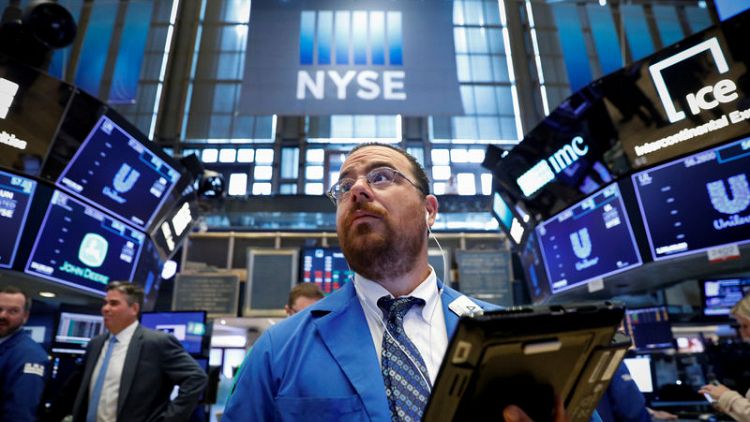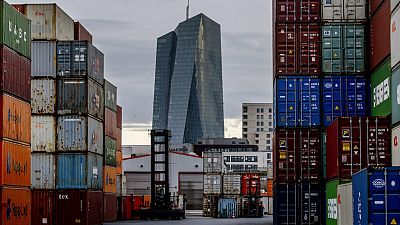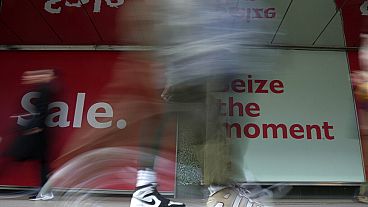By Laila Kearney
NEW YORK (Reuters) - Stocks fell worldwide on Wednesday amid fears of an escalation of the trade war between the United States and China although robust results from Apple Inc <AAPL.O> helped cap losses.
Apple, which jumped more than 5 percent to a record high of $201.32 after predicting a surge in current-quarter sales, was one of the biggest advancers on all three major U.S. stock indexes.
Still, market participants said Wednesday's reversal after a recent selloff of tech shares might not be sustainable.
"Whether that is a long-lasting effect on the tech sector is a question that cannot be answered," said Randy Frederick, vice president of trading and derivatives for Charles Schwab in Austin. "There is a big additional tariff that is being weighed and could be put into place at any moment, which is a concern."
The U.S. administration plans to propose tariffs of 25 percent instead of 10 percent on $200 billion worth of imported Chinese goods. Beijing vowed to retaliate if the United States slapped further tariffs.
The Dow Jones Industrial Average <.DJI> fell 90.78 points, or 0.36 percent, to 25,324.41, the S&P 500 <.SPX> lost 4.42 points, or 0.16 percent, to 2,811.87 and the Nasdaq Composite <.IXIC> added 27.40 points, or 0.36 percent, to 7,699.19.
MSCI's gauge of stocks across the globe <.MIWD00000PUS> shed 0.12 percent, while the pan-European FTSEurofirst 300 index <.FTEU3> lost 0.48 percent.
Equities investors were also parsing the Federal Reserve's policy statement on Wednesday, which kept benchmark U.S. interest rates unchanged after a two-day meeting but characterized the economy as strong, keeping the central bank on track to increase borrowing costs in September.
While equities sold off ahead of the Fed's statement, Wall Street barely reacted after it was released.
"It looks like a nothing burger," said Phil Orlando, New York-based chief equity strategist at Federated Investors. "They left rates unchanged, which was expected. They talked about the fact that the economy is doing pretty well, which it is."
The yield on the benchmark 10-year U.S. Treasury note <US10YT=RR> was also little moved by the Fed statement, but it broke above 3 percent for the first time since June 13 after the U.S. government said it would boost borrowing in the coming quarter to fund spending and debt obligations.
The government needs to fund a rising budget deficit even as the Fed continues to reduce its massive bond portfolio.
The dollar index <.DXY> rose 0.14 percent, with the euro <EUR=> down 0.21 percent to $1.1667.
The Japanese yen strengthened 0.33 percent versus the greenback at 111.52 per dollar <JPY=> after Tuesday's pledge by the Bank of Japan to keep rates extremely low for an extended period.
Traders appeared to be putting the BOJ's tolerance for higher yields to the test on Wednesday as the benchmark 10-year Japanese government bond yield rose to 0.12 percent <JP10YTN=JBTC> in its biggest one-day rise in two years.
Oil prices fell on data showing an unexpected rise in U.S. crude stockpiles. The price slump follows their largest monthly decline in two years in July.
U.S. crude <CLcv1> fell 1.60 percent to settle at $67.66 per barrel and Brent <LCOcv1> was last at $72.43, down 2.4 percent.
(Additional reporting by Tom Finn, Tommy Wilkes, Dhara Ranasinghe, Amy Caren Daniel and Kate Duguid; Editing by Bernadette Baum and James Dalgleish)



